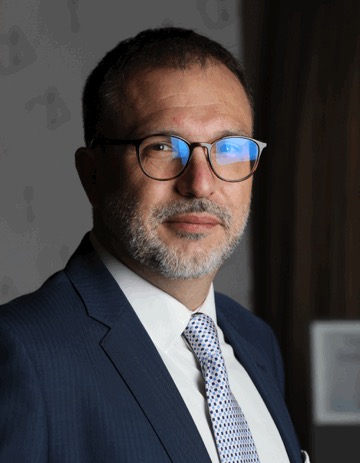Studying at the University of Verona
Here you can find information on the organisational aspects of the Programme, lecture timetables, learning activities and useful contact details for your time at the University, from enrolment to graduation.
Academic calendar
The academic calendar shows the deadlines and scheduled events that are relevant to students, teaching and technical-administrative staff of the University. Public holidays and University closures are also indicated. The academic year normally begins on 1 October each year and ends on 30 September of the following year.
Course calendar
The Academic Calendar sets out the degree programme lecture and exam timetables, as well as the relevant university closure dates..
| Period | From | To |
|---|---|---|
| 1° periodo di lezioni - 2° anno (1A) | Oct 3, 2016 | Nov 5, 2016 |
| Periodo riservato ad eventuali recuperi di lezioni (1A) | Nov 7, 2016 | Nov 12, 2016 |
| 1° periodo di lezioni - 1° anno (1B) | Nov 10, 2016 | Dec 17, 2016 |
| Periodo riservato ad eventuali recuperi di lezioni (1B) | Dec 19, 2016 | Dec 20, 2016 |
| 2° periodo di lezioni - 2° anno (2A) | Feb 9, 2017 | Mar 18, 2017 |
| Periodo riservato ad eventuali recuperi di lezioni (2A) | Mar 20, 2017 | Mar 25, 2017 |
| 2° periodo di lezioni - 1° anno (2B) | Mar 23, 2017 | May 6, 2017 |
| Periodo riservato ad eventuali recuperi di lezioni (2B) | May 8, 2017 | May 11, 2017 |
| Session | From | To |
|---|---|---|
| Sessione invernale - 2 appelli | Jan 10, 2017 | Feb 8, 2017 |
| Sessione estiva - 2 appelli | May 12, 2017 | Jul 15, 2017 |
| Sessione autunnale - 2 appelli | Aug 28, 2017 | Sep 30, 2017 |
| Session | From | To |
|---|---|---|
| Sessione estiva - luglio 2017 | Jul 4, 2017 | Jul 4, 2017 |
| Sessione autunnale - ottobre 2017 | Oct 16, 2017 | Oct 16, 2017 |
| Period | From | To |
|---|---|---|
| Festa di Ognissanti | Nov 1, 2016 | Nov 1, 2016 |
| Vacanze di Natale | Dec 24, 2016 | Jan 6, 2017 |
| Vacanze di Pasqua | Apr 14, 2017 | Apr 18, 2017 |
| Festa della Liberazione | Apr 25, 2017 | Apr 25, 2017 |
| Festa dei Lavoratori | May 1, 2017 | May 1, 2017 |
| Festa del Santo Patrono - San Zeno | May 21, 2017 | May 21, 2017 |
| Festa della Repubblica | Jun 2, 2017 | Jun 2, 2017 |
Exam calendar
Exam dates and rounds are managed by the relevant Law Teaching and Student Services Unit.
To view all the exam sessions available, please use the Exam dashboard on ESSE3.
If you forgot your login details or have problems logging in, please contact the relevant IT HelpDesk, or check the login details recovery web page.
Should you have any doubts or questions, please check the Enrollment FAQs
Academic staff
 roberto.flor@univr.it
roberto.flor@univr.it
 gianluigi.lucietto@univr.it
gianluigi.lucietto@univr.it

Migliorati Lorenzo
 lorenzo.migliorati@univr.it
lorenzo.migliorati@univr.it
 045802 8135
045802 8135
Study Plan
The Study Plan includes all modules, teaching and learning activities that each student will need to undertake during their time at the University.
Please select your Study Plan based on your enrollment year.
1° Year
| Modules | Credits | TAF | SSD |
|---|
To be chosen betweenTo be chosen betweenTo be chosen betweenTo be chosen betweenTo be chosen between2° Year activated in the A.Y. 2017/2018
| Modules | Credits | TAF | SSD |
|---|
To be chosen betweenTo be chosen betweenTo be chosen between| Modules | Credits | TAF | SSD |
|---|
To be chosen betweenTo be chosen betweenTo be chosen betweenTo be chosen betweenTo be chosen between| Modules | Credits | TAF | SSD |
|---|
To be chosen betweenTo be chosen betweenTo be chosen between| Modules | Credits | TAF | SSD |
|---|
Legend | Type of training activity (TTA)
TAF (Type of Educational Activity) All courses and activities are classified into different types of educational activities, indicated by a letter.
Criminal Law for public administrations (2017/2018)
Teaching code
4S003641
Teacher
Coordinator
Credits
6
Language
Italian
Scientific Disciplinary Sector (SSD)
IUS/17 - CRIMINAL LAW
Period
1° periodo di lezioni - 2° anno (1A) dal Sep 29, 2017 al Nov 9, 2017.
Learning outcomes
The course will provide the conceptual, methodological and cultural basis to understand and study the categories and the general principle of Criminal Law, developing the capacity in using correct and specific language and discourse. Students will gain, following this method and in subiecta materia, legal and technical expertise both on the general part of criminal law and the special part of criminal law levels.
In particular he course is focused on topics, questions and elements about the general and the special part of criminal law, in national, european and sovranational perspective. In particular, on the one hand, emerging and current criminal phenomena (i.e. in particular terrorism, cyber-terrorism, cyber attacks and „cyber-war“) will be investigated and, on the other side, the course will study the principles of the national and european criminal law, the criminal offences regarding the public adminstraions, the criminal offences against terrorism and cybercrime.
Tha aim is to deepen and update the understanding and the knowledge of the Italian criminal law system, in european and sovranational perspective, also through the study of important and current topics. For these reasons, the course is organised with frontal lectures and discussion areas, open to sociological and criminological perspectives. The materials will be available online (free download).
Program
The course is divided into the following parts:
1. Serious and transantional criminal phenomena and criminal law
2. National and European Criminal Law, in sovranational perspective; general principles of the Italian Criminal Law; the europeanisation of the Criminal Law, the role of the ECG
3. Crime against the public administration (artt. 357 - 360 p.c., 314 - 335-bis p.c., 336, 337, 340, 341-bis, 346, 346-bis, 348, 353 - 356, 393-bis p.c., included Law 190/2012)
4. Fight against terrorism and national Criminal Law, in European and Sovranational Perspective
5. Cybercrime and current perspective, at national, european and sovranational levels
| Author | Title | Publishing house | Year | ISBN | Notes |
|---|---|---|---|---|---|
| FIANDACA G., MUSCO E. | Diritto penale. Parte speciale. Vol. I (Edizione 5) | Zanichelli | 2012 | Per la parte relativa ai delitti contro la PA |
Examination Methods
Teaching methods are different with regard to students who will attend the course, also due to repeated legislative interventions in specific sectors and different interpretation in jurisprudence, also at sovra-national level. For students who will attend the course the methods will consist in frontal lectures about the basis and foundamental categories of “ICTs Criminal Law” and specific workshops on the recent, important and different interpretation in jurisprudence.
Specific works and articles and recent judgements will be published through on line e-learning.
During the academic year students may contact professors and use their students timetable (date of receipt). See the website of the Department
With regards to students who will not attend the course, the methods consist in the support of professors for an up to date study, available also through online information. After online registrations students may access to e-learning materials.
Studenst who attend the course can develop also short papers, in agreement with professor, replacing parts of the program.
The oral exam has the following goals:
Level and depht of study and understanding
Language properties
Capacity to connect systematically the understanding
Analitycal and arguing ability
Evaluation runs on a scale from 0 to 30 (successful completion of the examination starts from 18)
Teaching materials e documents
-
 programma e testi consigliati (ita/engl)
(msword, it, 54 KB, 27/07/17)
programma e testi consigliati (ita/engl)
(msword, it, 54 KB, 27/07/17)
Type D and Type F activities
Le attività che consentono l’acquisizione dei crediti riservati alle attività formative a libera scelta dello studente (TAF D) sono le seguenti:
• Un insegnamento attivato nei Corsi di studi afferenti al Dipartimento di Scienze Giuridiche;
• Un laboratorio didattico attivato nei Corsi di studi afferenti al Dipartimento di Scienze Giuridiche;
• Un insegnamento previsto dall’Offerta Formativa di Ateneo, non impartito nell’ambito dei corsi di studi afferenti al Dipartimento di Scienze Giuridiche: il riconoscimento dei crediti acquisiti sarà subordinato alla preventiva presentazione di coerenti programmi formativi valutati e approvati dal Collegio didattico.
• Attività formative organizzate dai singoli docenti del Collegio didattico o del Dipartimento di Scienze Giuridiche: previa approvazione del Collegio;
• Attività formative che implicano la partecipazione a convegni o seminari organizzati sotto il “logo” del Dipartimento di Scienze Giuridiche o dell’Ateneo: devono essere preventivamente approvate dal Collegio didattico indicando un docente di riferimento del Collegio didattico ovvero del Dipartimento di Scienze Giuridiche.
• Attività formative che implicano la partecipazione a convegni o seminari organizzati prive del “logo” del Dipartimento di Scienze Giuridiche o dell’Ateneo: devono essere approvate dal Collegio didattico indicando un docente di riferimento del Collegio didattico ovvero del Dipartimento di Scienze Giuridiche.
Le attività che consentono l’acquisizione dei crediti riservati alle ulteriori attività formative (TAF F) sono le seguenti:
• Ulteriori competenze linguistiche (6 cfu)
• Stage o Project Work (6 cfu)
Al link https://www.univr.it/it/i-nostri-servizi/segreterie-studenti/giurisprudenza#categdoc_7103 la modulistica per l'inserimento di attività non selezionabili in autonomia dallo studente in sede di compilazione del piano degli studi
Modules not yet included
Career prospects
Module/Programme news
News for students
There you will find information, resources and services useful during your time at the University (Student’s exam record, your study plan on ESSE3, Distance Learning courses, university email account, office forms, administrative procedures, etc.). You can log into MyUnivr with your GIA login details: only in this way will you be able to receive notification of all the notices from your teachers and your secretariat via email and soon also via the Univr app.
Student mentoring
Internships
Internships are aimed at enabling students to gain direct knowledge of the world of work and to acquire specific professional skills.
Internships are carried out under the responsibility of an individual lecturer, and can be carried out in professional firms, public administration bodies and companies recognised by the University of Verona.
Any CFU credits gained by doing internships will be recognised and recorded by the University in accordance with the relevant University regulations in force (Regolamento d’Ateneo per il riconoscimento dei crediti maturati negli stage universitari).
For further information on internships, please go to: https://www.univr.it/it/i-nostri-servizi/stage-e-tirocini.
Language skills
Graduation
List of theses and work experience proposals
| theses proposals | Research area |
|---|---|
| Analisi e riorganizzazione delle strutture comunitarie | Various topics |
| La social network analysis applicata allo studio dei contesti colpiti da eventi catastrofici | Various topics |
| L'intervento sociale in situazioni d'emergenza | Various topics |
| Politiche d'intervento in condizioni d'emergenza | Various topics |
| Terzo settore e gestione delle situazioni d'emergenza | Various topics |














